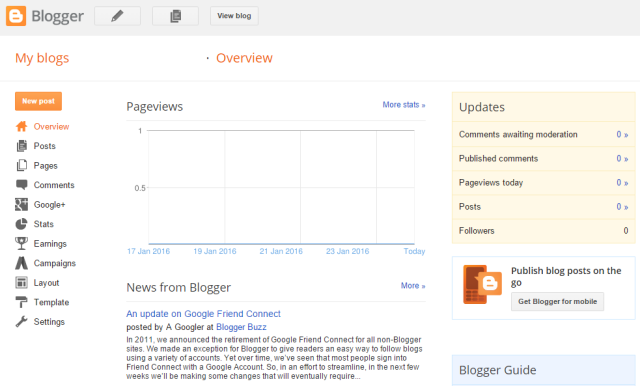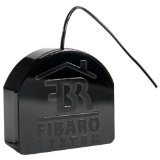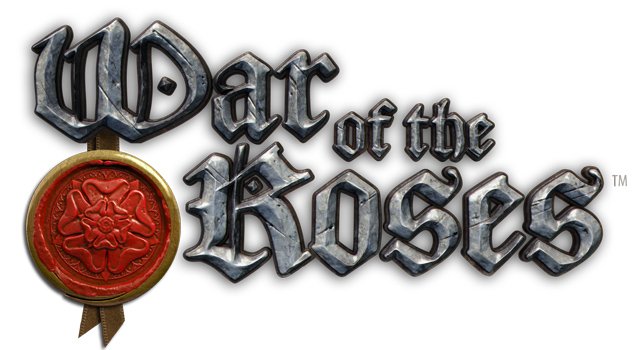

It’s never too late to take up a new hobby. Life offers so much choice, it’s difficult to know which chances to take. New hobbies can come from the most unexpected of places – even playing video games can jump-start a new fascination.
Sure, it can be expensive: courses can teach you expertly, but they still cost. Others are completely free and will increase your cognitive and non-cognitive health. All in all, hobbies make you a happier person: they’re low-risk, so if you’re not very good, the only thing that’s harmed is your dignity – there’s no pressure. That care-free environment has great consequences for both your home-life and your career. In fact, FastCompany’s Kevan Lee says:
“When Google began its famous 20% rule (employees could spend 20% of their time exploring fun, passionate side projects), the result was a more productive, more creative 80%.”
Here are just a few ideas to improve your life:
No one regrets learning a new language; it has so many positive effects!
As well as improving your grasp of your own language (and your confidence in expressing yourself), bilingualism improves your memory and open-mindedness, helping you embrace and properly comprehend another culture. It also looks great on your resume, making you more employable; Lingholic argues:
“Between two candidates with the exact same skill set and experience, the person who is bilingual is arguably much more likely to get the job.”
Socially, of course, you can meet new friends, or even get a pen-pal. The modern equivalent is HelloTalk Language Exchange: social networking with foreign speakers. It’s an international group of helpful natives, who are themselves trying to learn a different language.

Your cell phone can be useful too. Possibly the best free app to fully immerse yourself in bilingualism is Duolingo (also available online), which helps you slowly build up words into compound then complex sentences. The service covers written and spoken language together, so you get a more complete appreciation of what you’re being taught.
Its range of activities and ease of use means it has over 25 million users worldwide.
There’s a range of great apps that’ll help with a new foreign tongue; alternatively, Google Chrome’s Language Immersion extension is a smart way of casually learning something new. It simply translates words or phrases randomly on sites you frequent. You might even see it at work on MakeUseOf!
Blogs used to have a reputation, likened to having a diary that you proudly display to the world – despite the world not actually caring. Fortunately, they’ve shed this facade. They do, in fact, give you an opportunity to focus on a particular aspect of life, whether that’s the arts, technological tips, or even an account of the frustrations of commuting.

It’s an opportunity to shamelessly wallow in emotion, air your grievances, and unload the thoughts cluttering up your mind.
Jonathan Appleton recently set up My Doctor Who Stuff, a blog dedicated to his collection of Doctor Who merchandise and the memories attached to each, and prompting readers for recollections, reflections, and general musings on the show. Blogging, he argues, is great because you can start any-time you want, and in most cases, it’s free too:
“There’s something very liberating about that. I take the view that any kind of writing you do – whether it’s a blog, an article, a short story or script, a list of instructions, even a very dry report for your manager at work – will, in some way, broaden your experience and make you a better writer as a result.”
He is, however, an avid writer and reader, but blogging has its benefits for people who don’t see their future in the artistic industries. Editing your own work and finding those pesky red-underlined words will improve your spelling, grammar, and punctuation, and likely increase your vocabulary. The brain, after all, is a muscle that needs exercising just as any other.
If you struggle with discipline, gaining an audience forces you to commit; something that definitely improves your home-life. Scheduling posts will impose a structure on your week and make your time management more disciplined – that is, if you can keep up with blogging. It’s something that Jonathan has wrestled with himself:
“Once the novelty of launching the thing has passed, it can feel a bit of a slog to keep up a steady stream of new content. Another difficulty is that if it’s your own project you obviously don’t have an editor pressing you to meet deadlines and screaming down the phone at you (I probably have a rather dated view of what editors do…). Then there’s the associated stuff which you need to do to generate interest – Facebook page, Twitter feed…
The main thing is to keep it fun and enjoyable which, let’s face it, if you’re blogging about something you’re passionate about shouldn’t be a problem. I’m still finding my way with this issue but I’ve concluded that it’s better to focus on quality over quantity: the Internet really eats up content and successful blogs need to have new material online regularly, but one well written, considered piece will be preferable to three or four flimsy bits of fluff knocked off in a rush.”
Jonathan chose WordPress as his blogging platform, but others turn to Blogger (here’s a great comparison of the two), while Tumblr has also proven popular. Whether you’re blogging as a business or casually, there are loads of options – heck, even Evernote offers the service!
Swathes of us are musically gifted, but have untapped potential. Knowing you’re not the next Adele doesn’t stop you from singing, picking up a guitar, or trying out the triangle.
It’s ideal as a means of self-expression and of relieving stress, and can also increase confidence. After mastering a few chords – or even a few songs – you’ll want to show your new skill off to others. You might just start off performing to family and friends, but then again, you may have further ambitions to start or join a band. Having pride in yourself is a huge and important leap.
Learning to play an instrument could be the first step towards something great. And if it doesn’t take off, at least you’ve challenged yourself, and obtained a new skill. You could even volunteer to play for your community! Having this enjoyable hobby in your life is a source of happiness for thousands of folk.
Ah, but how do you get started? Simply pop onto YouTube. There’s a good first move. There’s a good chance that lessons on how to play all instruments are available on the video depository. The banjo? Yep. The triangle? That too. Admittedly, instructions for the glass harmonica are lacking…
Naturally, the Internet offers a great amount of free tuition, but failing that, you can even make music on your iPhone! Alternatively, your mobile device could support your hobby, helping to fine-tune your musicality. Try Pro Metronome (on iOS and Android), which can aid your sense of tempo and rhythm. It may seem a pointless tool, but can help you obtain consistency; beginners especially subconsciously alter speed depending on the beat’s difficulty. A metronome will better your technique when practising alone or with friends.

Pro Metronome has a smart, sleek interface: simple but well-realized with the added benefit of creating playlists and customization. One of its nicest features is the ability to change its tone, so its default Blip can be changed into Drums, Voice Counting, or a Traditional sound.
Soccer and American Football are drummed into most students, but racquet sports also offer a number of advantages aside from simply having fun. Tennis, squash, badminton, racquetball: it doesn’t matter what you try – all of them will make you healthier, promoting cardiovascular well-being, and developing your dexterity and agility. Your stamina and concentration will increase, as will your hand-eye coordination.
Can we get you a bigger racquet @milosraonic pic.twitter.com/tWDAypGOjz
— Australian Open (@AustralianOpen) January 16, 2016
But it’s difficult to take up. What’re the rules? Will you make a fool out of yourself? How many people will bear witness to said embarrassment?
Why not try the Wii or Wii U instead? Wii Sports shipped with the console as a way of showing off its controls, and as a reaction against those articles slamming video games as being unhealthy. Here was a game that would encourage exercise, improve your game, and give you a tasters of different sports. No doubt, many fell in love with the ease of ten-pin bowling, but its tennis application was promoted the most. Since then, a whole army of related fitness games have swept onto the market, notably Wii Fit.
Big-name franchise like Mario and Sonic have also jumped on the bandwagon… and proved themselves rather popular. If you don’t class (k)arting as a sport, how about Mario Super Sluggers, Sega Superstars Tennis, or the Summer and Winter Olympic titles?
Engaging with sports via your gaming system is a great way of getting fit in the comfort of your own home, while also improving reflexes. Games offering various sports mean you’ll have a chance to explore a new activity which you can then have a proper go at down your local leisure club.
On a personal note, I never liked Physical Education in school, but have since found badminton and squash in particular hugely enjoyable. I got into the latter after attending a badminton session at my local leisure center – but the tutor didn’t turn up. I drifted over to the squash courts to look for him, and despite not knowing anything about the sport, was intrigued by the game.
Even hearing that you have to wearing goggles or risk being blinded by the fast-moving ball didn’t put me off! All those odd lines on the court may look confusing, but Curly’s Pocket Guide app can help you understand exactly what it’s all about.
It’s high-octane exercise that requires dedication, instils quick reactions, and encourages endurance. It shouldn’t be something that a sports-hating guy enjoys, yet its heaps of fun, and I implore you to give it a go… if only to take out some of your frustrations from the day! Indeed, hobbies can be a way of recovering from the worries of your career. A 2014 study into creative activity concluded that those with creative outlets were:
“… more likely to feel a sense of relaxation outside work and to feel greater control and a sense of mastery. At work, meanwhile, those with a creative hobby were more likely to help others and to be more creative in the performance of their job.”
A strong argument can be made that all hobbies improve your life. If you enjoy it, it’s worthwhile – whether that’s vlogging, scrapbooking, photography, or learning how to code.
What hobbies have you recently taken up and why? Or maybe you’ve stuck with the same one for numerous years: what’s its pulling power? Any hobbies you’re unsure about? Let us know below!




 One Piece: Pirate Warriors 3 Beginner's Guide - Tips and Tricks
One Piece: Pirate Warriors 3 Beginner's Guide - Tips and Tricks Top 10 Best Platform Games for the Xbox One
Top 10 Best Platform Games for the Xbox One WWE 2K16 Wiki – Everything you need to know about the game .
WWE 2K16 Wiki – Everything you need to know about the game . War of the Roses Hands-On Preview
War of the Roses Hands-On Preview 5 Tips to Make a Great Profile Picture for More Likes and Followers
5 Tips to Make a Great Profile Picture for More Likes and Followers